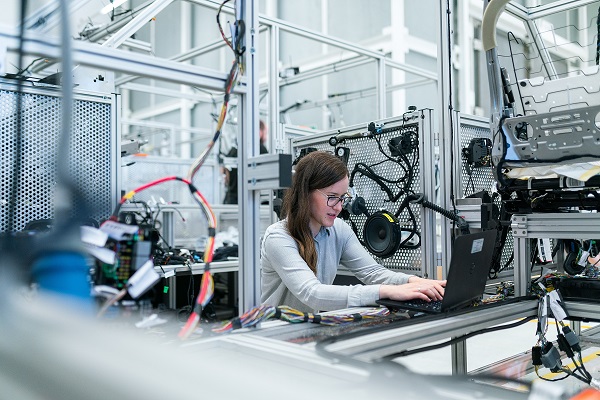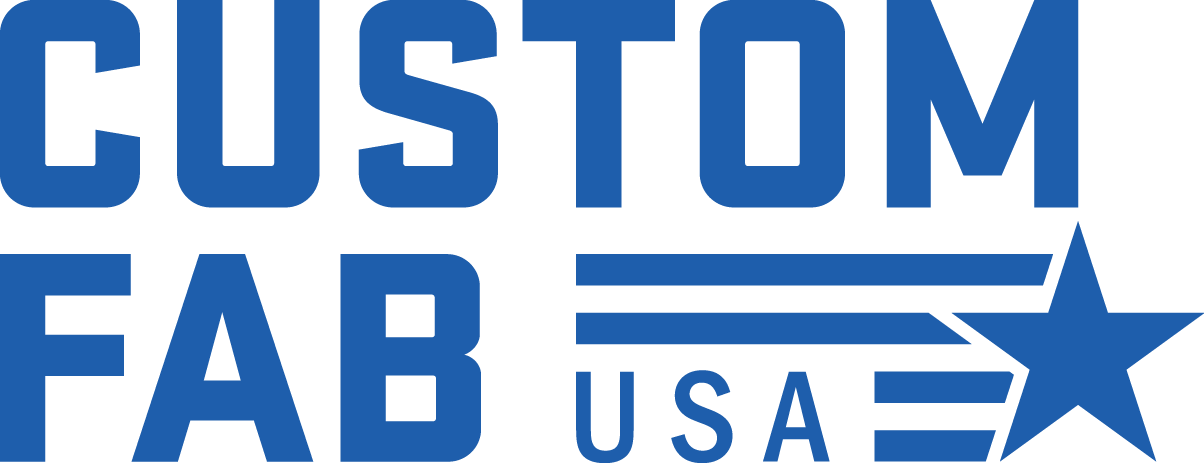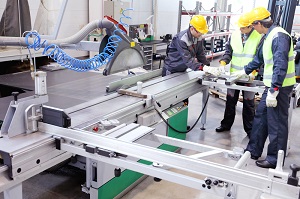Women in Manufacturing by Madeline de Quillacq
I’ve learned a great deal about the US economy during my time as an intern at the Reshoring Institute. The industry that I’ve learned the most about is manufacturing. In particular, I’ve learned how important women are to the manufacturing sector and how companies are working towards inclusivity. As a woman myself, doing research on dissolving the gender gap is incredibly rewarding. Over the past few decades, the United States has made remarkable improvements in empowering women of all professions; of course, women in manufacturing are no exception. However, there is still a tremendous way to go before we can achieve holistic gender diversity and inclusivity within this industry.
Approximately 13.5 million Americans are employed in the manufacturing industry. This statistic attributes 8.5% of all US jobs, and 11% of total US GDP. Manufacturing generates more economic activity than any other sector. In addition, manufacturing has been dubbed the most efficient sector in raising living standards. For every dollar of domestic manufacturing value-added, another $3.60 of economic activity is generated elsewhere across the economy. It is said that for every job created in durable manufacturing, three other jobs are created. By comparison, the number of indirect jobs associated with one retail trade job is just 1.22. No other industry can directly impact local economies to the same extent as manufacturing.
Women’s inclusion in the manufacturing industry is pivotal to sustaining this success. Women only hold roughly 29% of manufacturing positions even though women make up nearly 47% of the US labor force. Across the US, women earn more than half of the associates, bachelor’s, and master’s degrees, however, they continue to be manufacturing’s largest pool of untapped talent. In addition, women hold more than half of all US managerial and professional positions. Despite their potential, women are underrepresented in nearly every single manufacturing sector.
The possibilities of including women in this field are limitless. More women are pursuing college degrees in the fields of STEM (Science, Technology, Engineering, and Math) than ever before. Common misconceptions about the manufacturing industry (all jobs are difficult, dirty, unskilled, etc.) are changing. Moreover, many manufacturing firms are cognizant of this untapped talent pool and are making explicit efforts to be more gender diverse. There are a series of initiatives that firms are implementing to recruit and retain more women, which has proven to be incredibly successful. Overall, the manufacturing industry is becoming increasingly welcoming towards women. I’m excited to see how reshoring will contribute to closing the gender gap in this industry and how women will be empowered to enter this field.
 Madeline de Quillacq is a student at the Elliott School of International Affairs at the George Washington University, pursuing a Bachelor of Science in Economics and International Affairs, with a concentration in International Economics. She attended Sciences Po in Paris on exchange for one year where she taught English as a second language through a local speaking agency. She is president of GW Women in Economics and has been a student research assistant at the Institute of International Economic Policy for over a year. Her research focuses on constructing a unique granular database on international capital flows, which includes every bond, loan, and share issued in international capital markets over two hundred years.
Madeline de Quillacq is a student at the Elliott School of International Affairs at the George Washington University, pursuing a Bachelor of Science in Economics and International Affairs, with a concentration in International Economics. She attended Sciences Po in Paris on exchange for one year where she taught English as a second language through a local speaking agency. She is president of GW Women in Economics and has been a student research assistant at the Institute of International Economic Policy for over a year. Her research focuses on constructing a unique granular database on international capital flows, which includes every bond, loan, and share issued in international capital markets over two hundred years.
She served as an undergraduate teacher’s assistant for the college course “Principles of Mathematics for Economics” and presented her research at two teaching conferences in Pittsburgh and St. Louis. She also worked for the GW School of Business in the office of Management and Tourism as an administrative assistant. Madeline is a tri-citizen (US, UK, France) and fluent in French. She is passionate about politics, languages, travel, and art.




